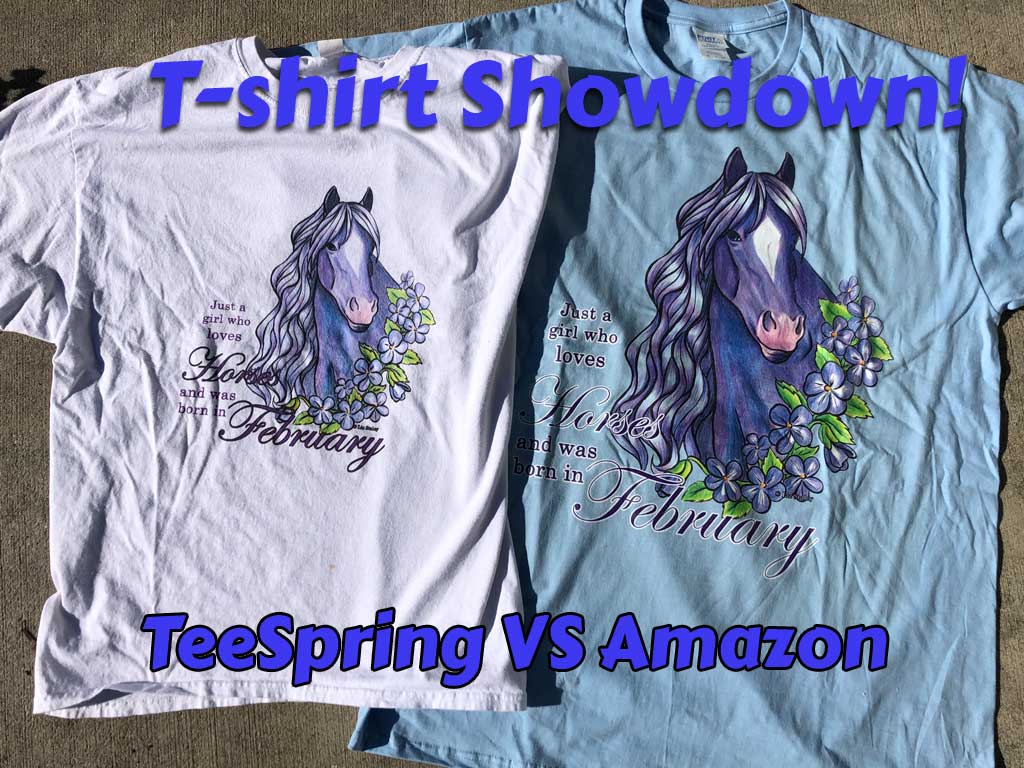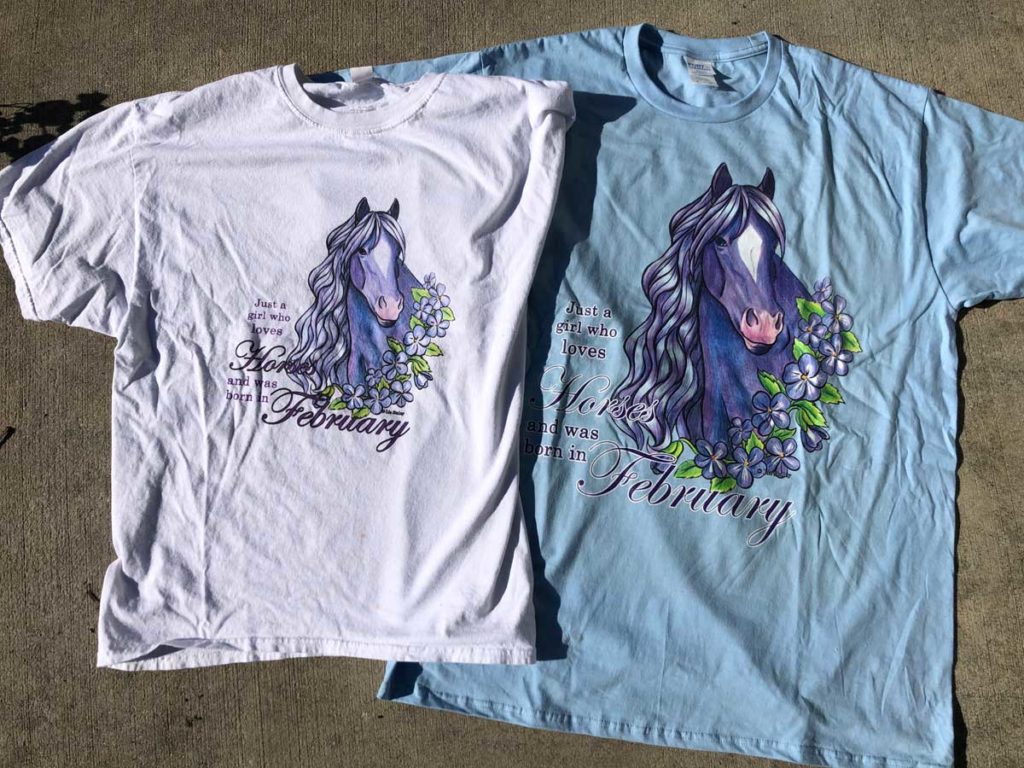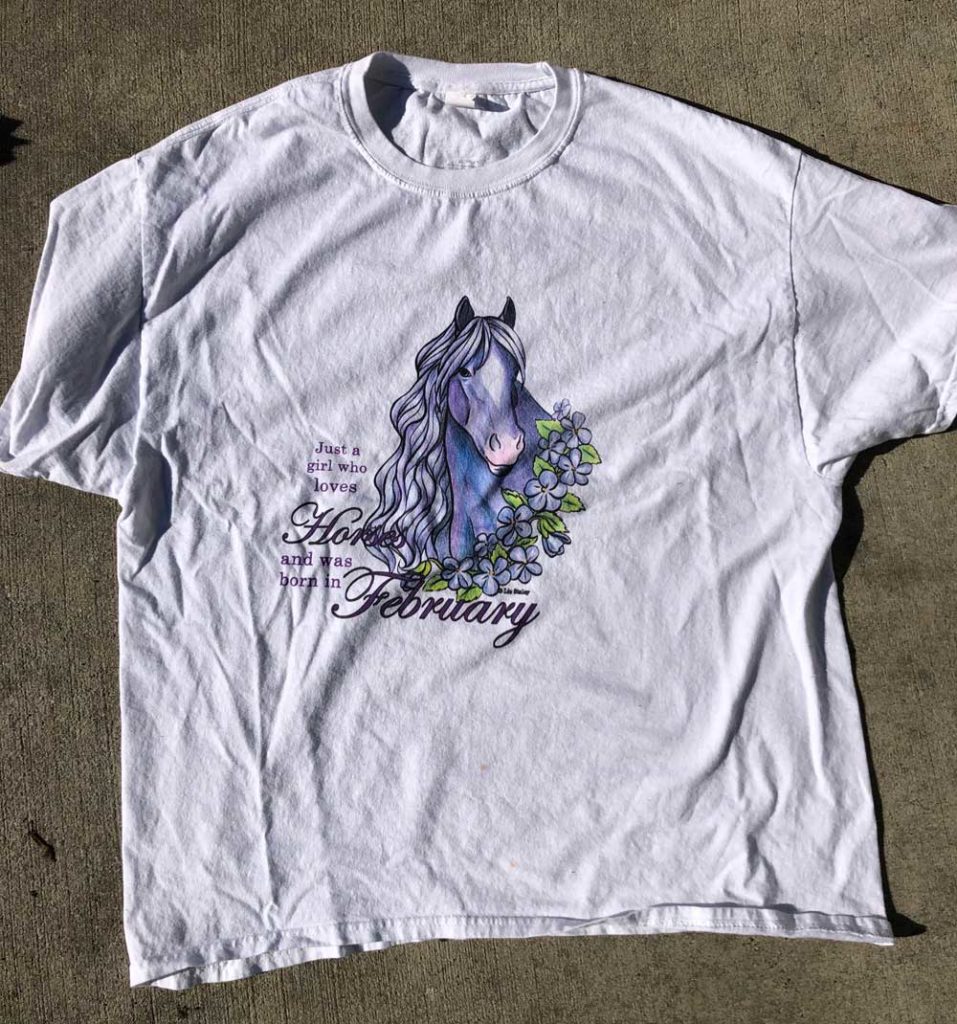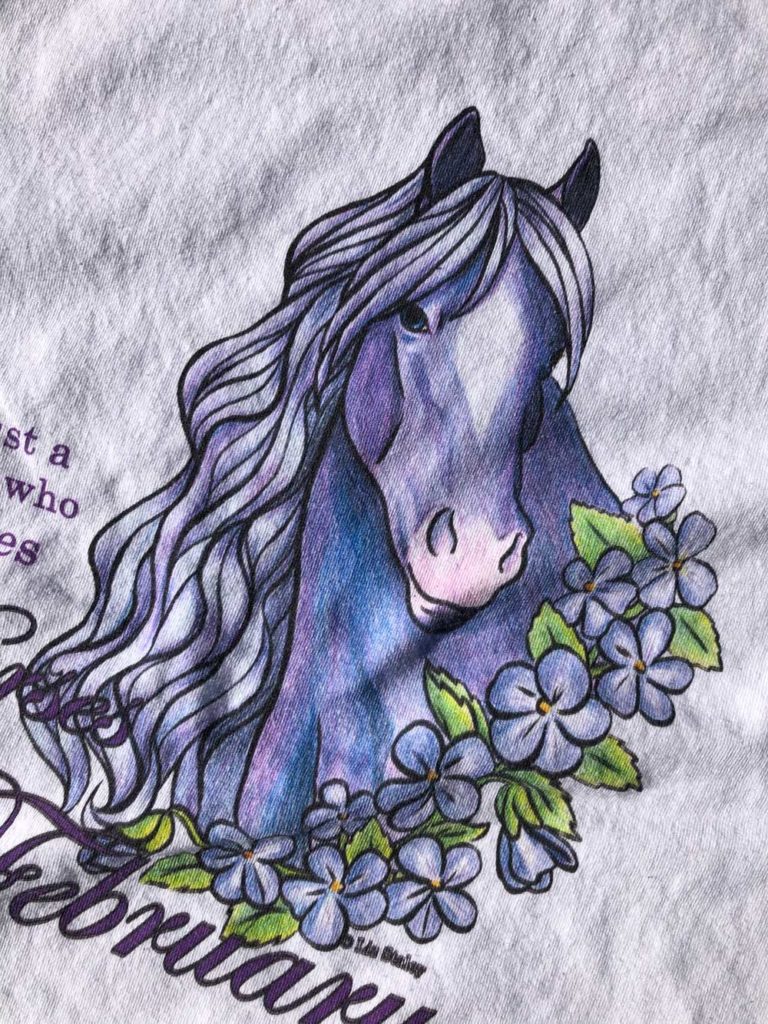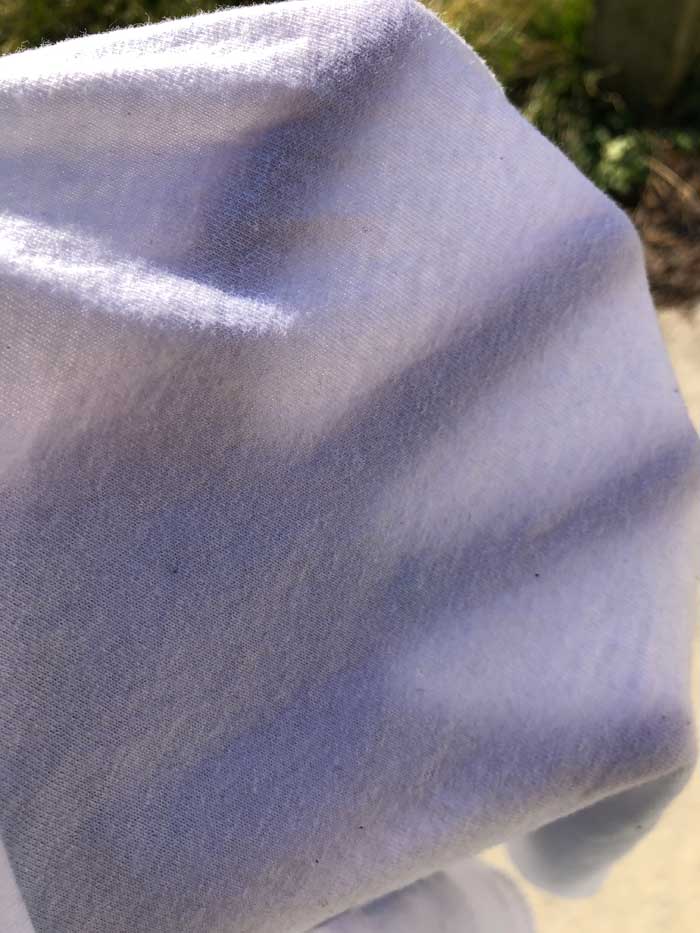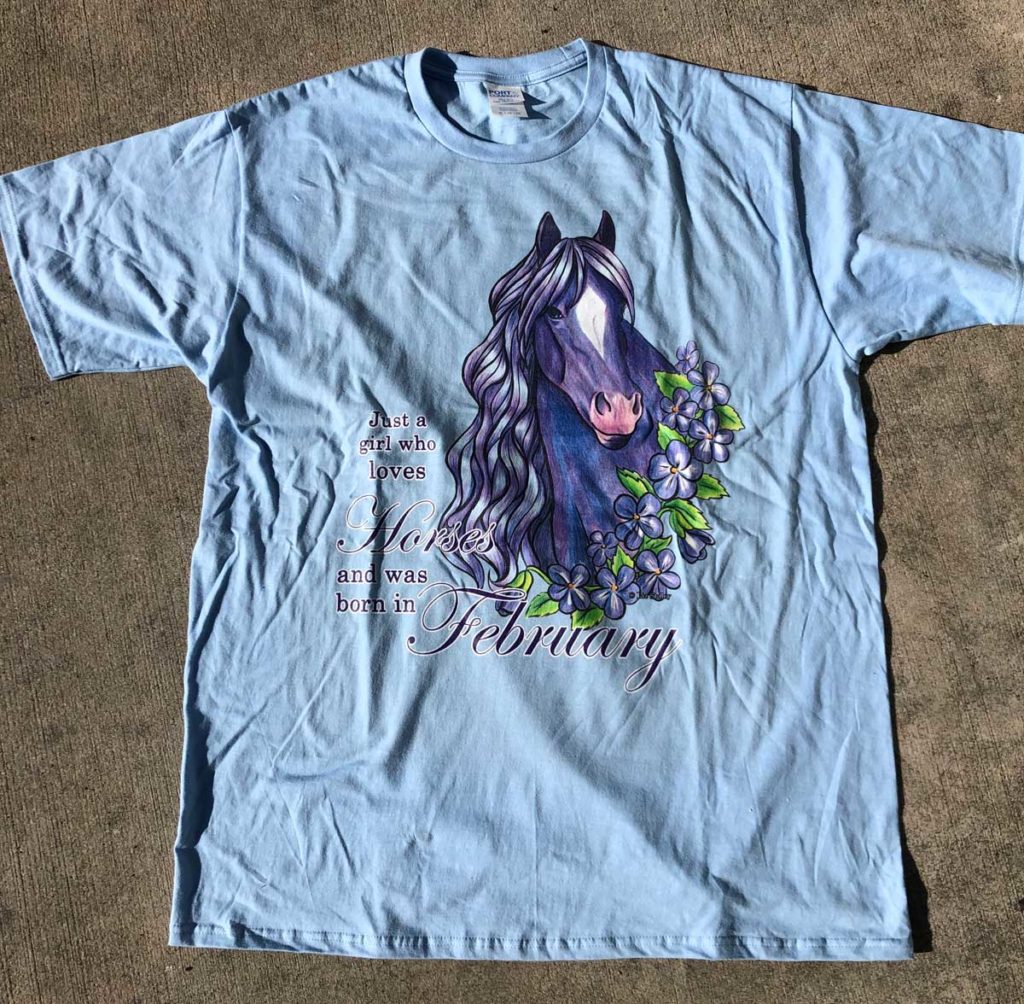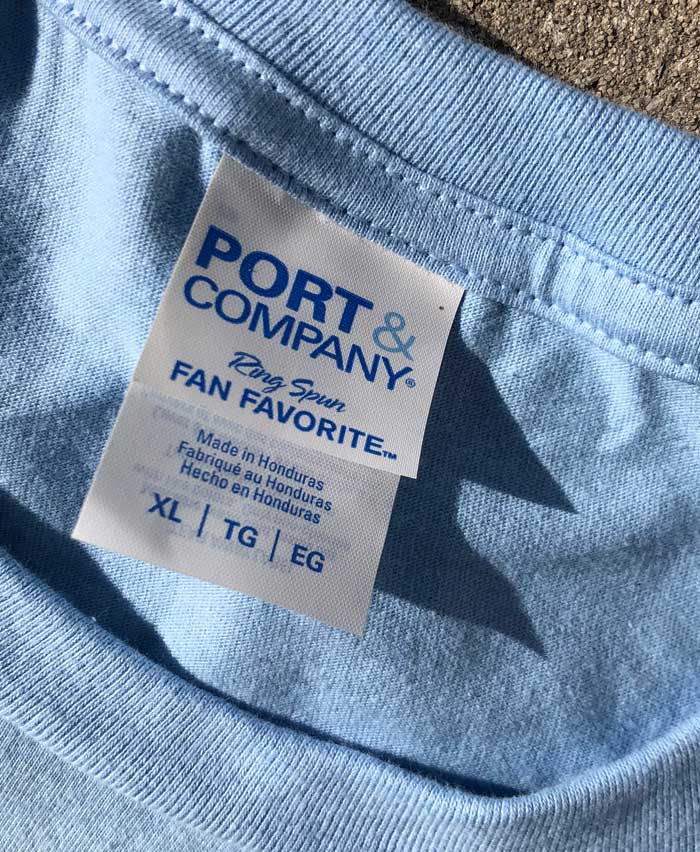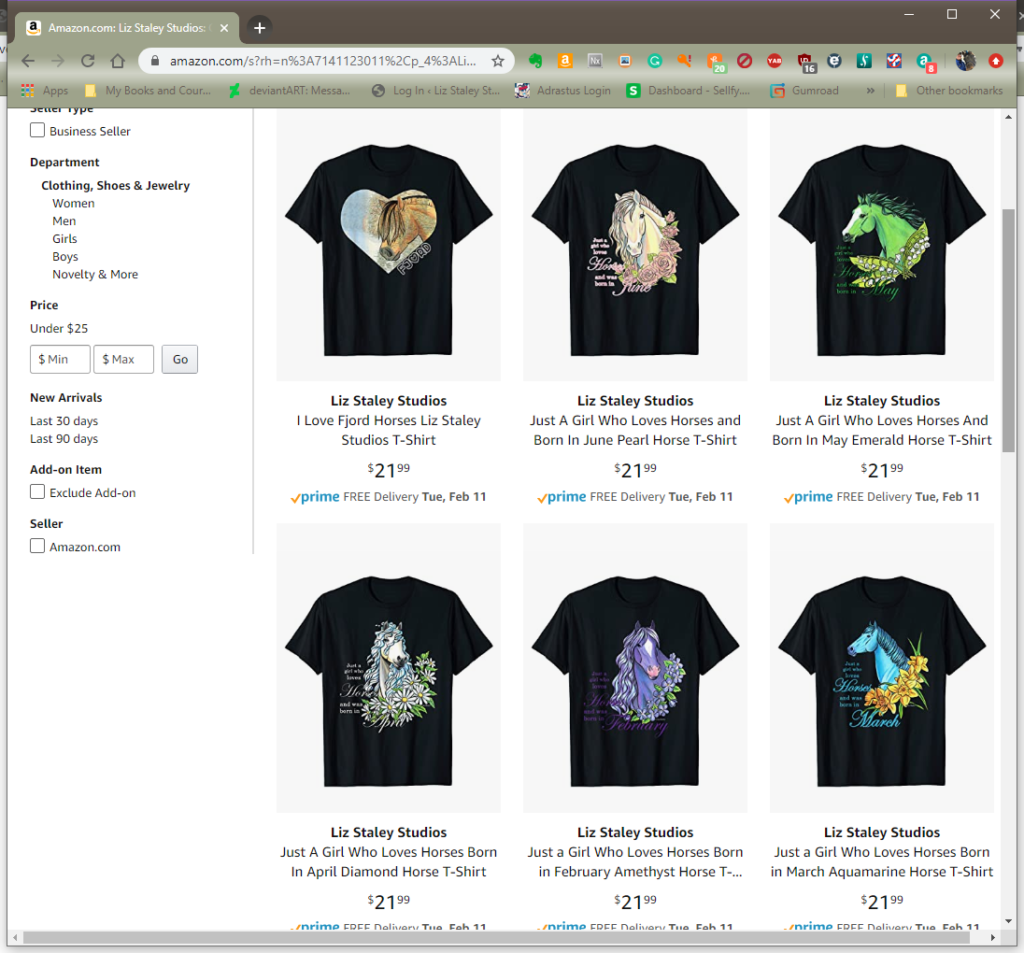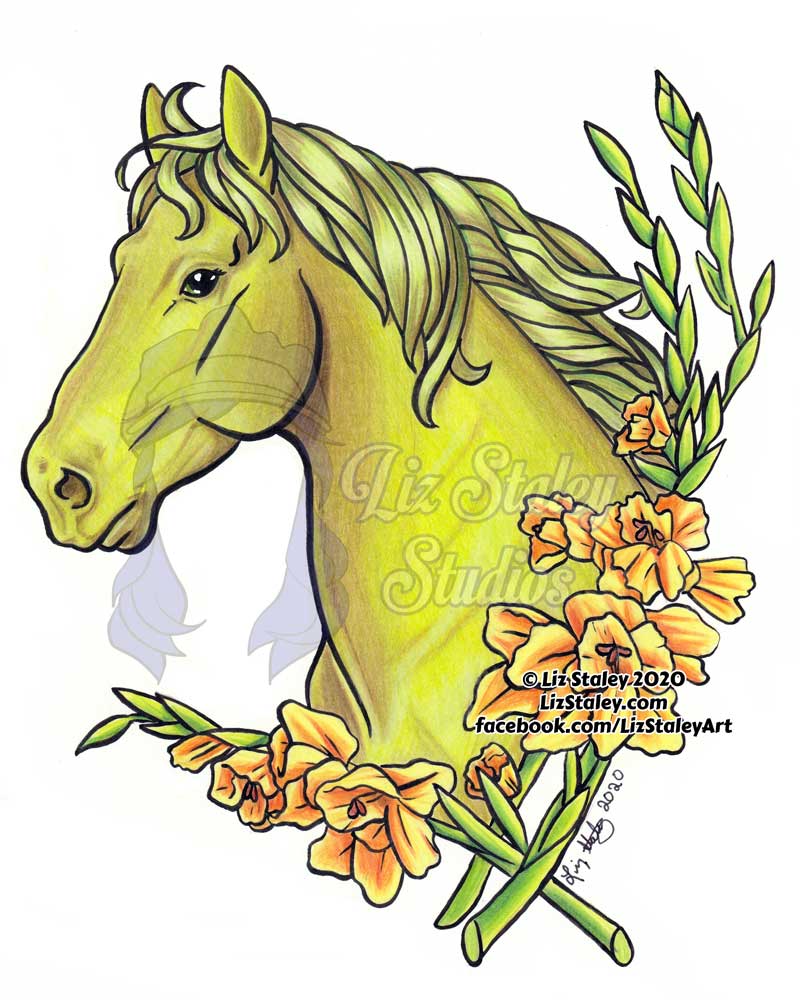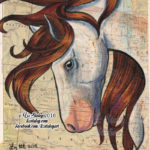
If you follow me on social media, you’ve seen my new series of horses I’ve been working on this year – Birthstone Horses. These are horses with coloring based on the birthstone associated with each month, and they also are bordered on two sides with sprigs of the monthly flower as well. I’m so happy with how well these designs are being received, and I wanted to introduce the next four horses to my dear readers. So, read on to see some new Birthstone Horses and to read about the properties of each stone and flower.
The first part of this blog post series can be found here.
The second part of this blog post series can be found here.
Sapphire (September)
Traditionally a stone of priests and kings, the sapphire symbolizes purity and wisdom. This stone was once thought to guard against evil and poison, and it was believed that a venomous snake placed in a vessel made of it would die. Considered one of the finest of all colorful gemstones, the sapphire features in Asian, European, and Near Eastern mythology, history books, and religious texts. The name of this stone originates from the Greek sappheiros, which means “precious stone”. Many people believed the sapphire could cure physical ailments, especially eye infections, headaches, ear ache, and thyroid problems. In ancient Greece and Rome, royalty wore blue sapphires because they believed the stone would protect the wearer from the evil intentions of their enemies.
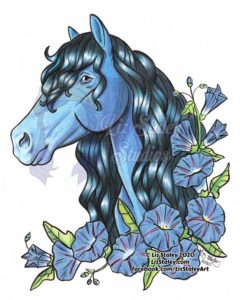
The Morning Glory is the flower of September and of 11th wedding anniversaries. This flower blooms and dies within a single day. In the Victorian flower meanings, they signify love, affection, and mortality. In Chinese folklore, they represent a single day for lovers to meet. The flowers blossom in the morning and die by afternoon or nightfall, making it representative of the sometimes fleeting nature of affection. The vine produces new flowers each day during its growth season, representing the renewable nature of love.
Opal (October)
The birthstone for October is the Opal, whos name was derived from the Sanskrit upala, meaning “precious stone”, and later from the Greek Opallios, meaning “to see a change of color.” For a long time, Opal was believed to be a stone that brings bad luck. This unfortunate reputation and myth is attributed to Sir Walter Scott and his 1829 novel “Anne of Geuerstein”. The public took a part of the novel where an Opal’s color was destroyed after coming into contact with a drop of holy water to be a warning that the stone would bring bad luck in real life. This myth destroyed the European opal market for almost 50 years, causing the market to crash within months of the novel’s publication. Before this, however, in medieval times, all blond maidens wanted a necklace made of Opal because it was believed the stone would keep their hair from fading or darkening. The opal was also believed to make its wearer invisible at will. The opal was a symbol of fidelity and assurance among the ancients, and became associated with emotional religious prayer. It was believed to have healing properties against illness of the eyes, and that it would also make the wearer of an Opal amulet immune to disease and increase the powers of the eyes and mind.
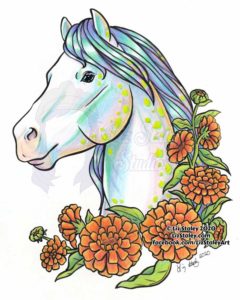
Calendula, also known as pot Marigold, Holligold, Bull’s Eyes, and Mary’s Gold, is the flower of October. It also bears the folk name of Summer’s Bride because the head of the plant turns as the sun moves across the sky. Because of this, Calendula has strong symbolism tied to the sun. In the garden, Calendula repels insects, which gives it a protective meaning. The petals of the Calendula are edible, so when you want to take in the energy of this flower you can toss it into salad or soup! Healers in the Middle Ages carried Calendula as a talisman to protect them from the plague. In India, this flower is among the most sacred. It represents thankfulness, excellence, and serenity. Calendula can be found adorning holy statues in India like living necklaces.
Topaz (November)
For over 2000 years, the Topaz has been treasured and appreciated. Though Topaz comes in many colors, it is the golden-yellow version that is associated with November. Topaz is said to bring prosperity and happiness into its owner’s lives. It is known as the bringer of abundance, and also has a reputation for promoting good health and alleviating stress. It is said the stone has a relaxing effect and may help people keep calm under pressure and help you think straight. The stone is said to aid in visualization and the manifestation of your goals and dreams. Topaz was associated with the sun god Ra in ancient times. In India, a Topaz worn just above the heart promised beauty, intelligence, and long life.
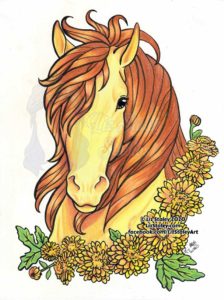
As early as the 15th century BC, the Chrysanthemum appeared in Chinese writings and was used as an herbal remedy. The boiled roots of the flower were believed to cure headaches, and the sprouts and petals were eaten in salads. The Chinese city of Chu-Hsien was named after the flower, and the name literally means “Chrysanthemum City”. Buddhist monks took the Chrysanthemum to Japan in 400 AD. Soon after, it was adopted as the emperor’s crest and official seal. Every year there is a national Chrysanthemum day, which is also called the Festival of Happiness. The Chrysanthemum blooms in the fall, signifying joy and beauty despite the oncoming Winter. Victorians used the flower to show friendship and to wish others well. In China, the chrysanthemum is traditionally offered to the elderly as they symbolize long life as well as good luck.
Turquoise (December)
Since the days of Ancient Egypt, turquoise has been known throughout the world and in high demand. Turquoise was one of the first gemstones ever mined, as far back as 6000 BC. It has been used for thousands of years in jewelry, especially by the Ancient Egyptians. Today, the Native Americans, especially the Zuni and Navajo peoples, produce the best pieces in the United States. The Zuni believe that the stone protects from demons. The Navajo believe that this blue stone falls from the sky. Apache warriors wore turquoise in the belief that it improved their hunting abilities. It has also been seen as a symbol of good fortune and success, and is believed to relax the mind and protect its wearer from harm. In particular, Turquoise rings are thought to keep away evil spirits.
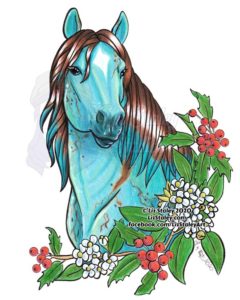
The holly plant, now used primarily to decorate for Christmas, was considered to be sacred by the Druids. The Druids regarded the plant as a symbol of fertility and eternal life and was thought to have magical powers. Cutting down a holly tree was said to bring bad luck, but hanging holly in the home was believed to bring good luck and protection. Holly was also thought to protect the home against lightning strikes. Christians adopted the tradition of hanging holly from the Druids, Celts, and Romans, and its symbolism changed to reflect Christian beliefs. Today, Christians believe the red berries symbolize the blood of Jesus, and the spiky leaves symbolize the crown of thorns placed on Jesus’ head before he died on the cross.
And that, dear reader, is the end of the Birthstone Horses series! I loved working on this series, researching the different stones and plants, and using new techniques to render these beautiful horses! I learned so much about colored pencils doing this series. One of the things I love most about doing art is figuring out how to tell a story with a static picture, and this series was a challenge but also so rewarding to work on!

